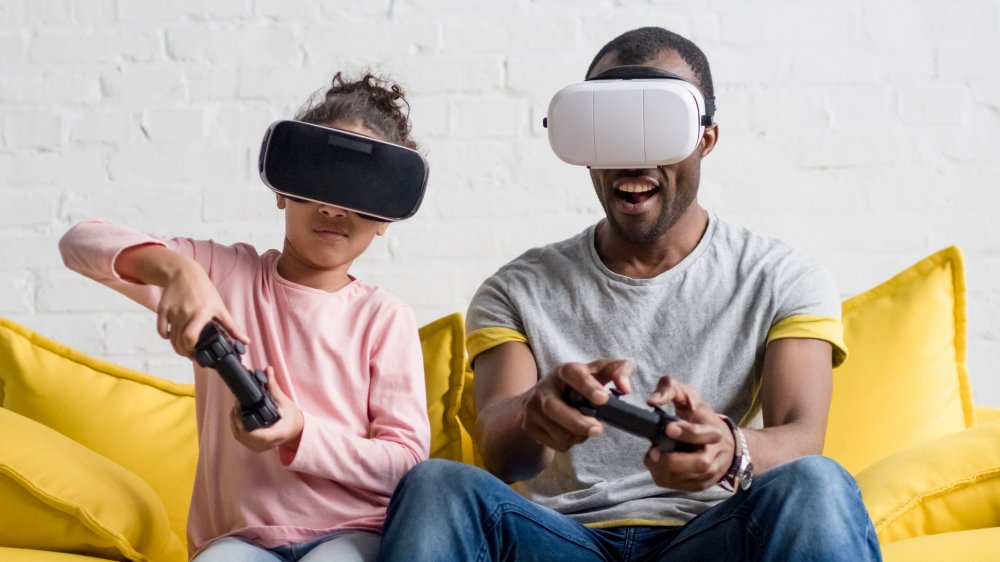Things Parents Never Understand About Gaming
Parents and video games sometimes mix about as well as orange juice and milk. It's almost tradition that adults cannot wrap their heads around their children's entertainment choices. Some parents didn't understand the Beatles when they landed in 1960s, and today, many parents don't get gaming.
But why can't parents comprehend what goes on in video games? After all, many adults are programmers and engineers, and what are video games but interactive lines of code translated into shapes on a screen controlled by remotes? Turns out it's often good old conceptual misunderstandings.
Whatever the cause, here are some key concepts parents just can't seem to grasp about gaming.
You can't pause online games
Say you're playing a video game. You enjoy yourself so much you lose track of time, and suddenly your parents call you down for dinner. What do you do? If you're playing a single-player game, you're safe since you can (usually) just pause the game. But, if you're playing an online multiplayer title, your hands are tied.
In competitive titles like Fortnite, you can only "pause" by stepping away from the game — a guaranteed death sentence. One hundred players are trying to survive, and many are more than willing to take out contestants who have left their console or PC to achieve an easier victory.
Even when a player is working with a team in titles like Apex Legends or World of Warcraft, leaving for dinner is less than ideal since those games feature cooperative modes that require players to work together like well-oiled gears. One player breaking for food is more than enough to ruin the team's hard work, which isn't fair for the players who didn't need to pause.
No matter how you swing it, pausing during an online game is unfair for someone. Just let a gamer finish their online match, and nobody gets hurt.
Video games can have learning and health benefits
You've all seen the "lazy gamer" stereotype: A lethargic figure who sits on their butt all day watching pixels dance on the TV screen. While playing too many video games can leave you unhealthy or out of shape, the same goes for reading books instead of exercising.
Name a video game a parent thinks is mindless entertainment, and you can show them three titles that help improve problem solving skills. Some titles are obvious, like the strategy series StarCraft, but Call of Duty can improve visual attention; and Grand Theft Auto can surprisingly help gamers process and examine information. But don't just take the word of game designer and Ph.D.-holder Jane McGonigal; an article published by the American Psychological Association mostly supports her opinions.
If a parent tries to reassert that video games discourage exercise, tell them about games that are designed to get people moving. If you have a VR headset, games like Beat Saber and BoxVR give your arms a workout, and if you own a Nintendo Switch, titles such as Zumba: Burn It Up and Ring Fit Adventure are guaranteed to make you sweat.
Video games are a great bonding experience
Virtually every parenting site on the internet offers the same advice: support your child's interests and play together. This could include baseball, board games, and yes, even video games. Just because a child is interested in playing a game on a TV screen, doesn't mean it is any less valid of a bonding agent.
Several studies show the benefits of parents playing video games with their children. For instance, one study demonstrated that girls become less aggressive and more sociable when they play video games with their parents. Meanwhile, another study showed that parents don't even have to play games with their children to bond; just stay in the same room, watch, and "insert their own 'teaching moment'" at the right time.
It doesn't matter whether a child loves multiplayer games like Fortnite or would rather play single-player epics like The Legend of Zelda: Breath of the Wild. Any way a parent can use a video game to bond with their child is time well spent.




